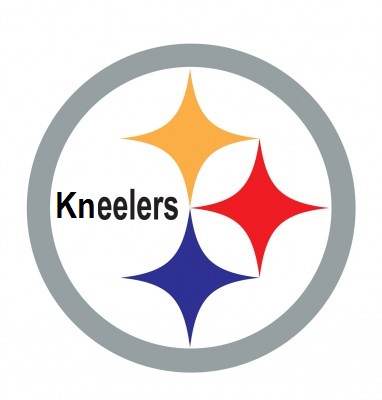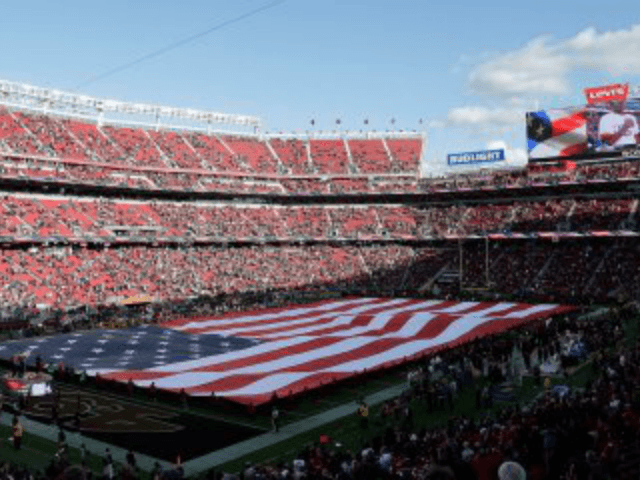The New York Times’s Double Standard on the NFL
The paper says pro football players have speech rights it denies to its own reporters.
By William McGurn
Oct. 16, 2017 6:57 p.m. ET
Good thing for Colin Kaepernick he isn’t a New York Times reporter.
As quarterback for the San Francisco 49ers, Mr. Kaepernick was backed by NFL Commissioner Roger Goodell in 2016 when he chose not to stand during the national anthem. Mr. Goodell said that while he didn’t necessarily agree with Mr. Kaepernick, “players have a platform, and it’s his right to do that.” One year and many NFL game day protests later, Times executive editor Dean Baquet has just made clear to his own employees: There will be no taking of knees if it embarrasses the Times.
Which puts the Gray Lady in a pickle. When Mr. Kaepernick began protesting the national anthem, the Times ran a few opinion pieces but refrained from staking out an official position. That changed after Donald Trump weighed in. At a Friday night rally in Alabama last month, the president asked: “Wouldn’t you love to see one of these NFL owners, when somebody disrespects our flag, to say ‘Get that son of a bitch off the field right now?’ ”
In response, the Times blitzed. A Sept. 24 editorial called “The Day the Real Patriots Took a Knee” asserted the president’s remarks about the flag and players were yet more evidence of his disregard for “the legitimate and deeply felt fears and grievances of minority Americans.”
It piled on, accusing Mr. Trump of “implying that players give up their right to free speech when they put on a uniform.” For good measure, it went on to impugn Treasury secretary Steven Mnuchin for suggesting “players should keep their mouths shut in the workplace.”
We get it: Employers have no right to restrict their employees’ speech.
But one tiny question: Why do Times reporters not enjoy this same right?
Because within three weeks of blasting those who believe NFL players have no First Amendment right to use the football field to make political statements, Mr. Baquet issued a memo about social media warning Times reporters not to use their “vibrant presence” on these platforms to express their own, uh, deeply felt fears and grievances.
Mr. Baquet says “the key points” are as follows:
• “In social media posts, our journalists must not express partisan opinions, promote political views, endorse candidates, make offensive comments or do anything else that undercuts The Times’s journalistic reputation."
• “Our journalists should be especially mindful of appearing to take sides on issues that The Times is seeking to cover objectively."
• “These guidelines apply to everyone in every department of the newsroom, including those not involved in coverage of government and politics.”
In its NFL editorial, the Times approvingly quoted New England Patriots owner Robert Kraft, who defended his players’ right to “peacefully affect social change and raise awareness in a manner they feel is most impactful.”
For its own employees, the Times has now chosen a different approach.
“We consider all social media activity by our journalists to come under this policy,” the memo warned. “While you may think that your Facebook page, Twitter feed, Instagram, Snapchat or other social media accounts are private zones, separate from your role at The Times, in fact everything we post or ‘like’ online is to some degree public. And everything we do in public is likely to be associated with The Times.”
Remember, when NFL players take a knee, they do so in the uniforms of their employers, in a workplace paid for by their employers, and before a TV audience provided by their employers. By contrast, while someone might be identified on, say, Twitter as a Times reporter, it’s not a Times platform. In this sense, a reporter posting on Facebook is more akin to Mr. Kaepernick’s appearing at, say, a Black Lives Matter rally, off hours and out of uniform.
At a panel discussion at George Washington University last Thursday, Mr. Baquet was blunt about why he’s going all Mike Ditka on the social media accounts of his employees. It’s vital, he says, to institutional credibility. He wants to be able to say of Times coverage that “we’re doing this because it’s journalistically sound, we’re not doing this because we have a vendetta or [because] we’re trying to take him out, and I can’t do that if I have 100 people working for the New York Times sending inappropriate tweets.”
It’s an eminently sane argument—even if rooted in the premise that the Times will be discredited by more honesty about what its reporters really think. If the NFL owners decide at their fall meeting this Tuesday to require players to stand for the national anthem, expect Mr. Goodell to emerge offering a version of the Baquet argument.
To paraphrase Justice Oliver Wendell Holmes, while everyone has the constitutional right to free speech, no one has a constitutional right to work for the New York Times. Surely that goes for the NFL too. So why does the Times believe professional football players have more speech rights than its own reporters?
https://www.wsj.com/articles/the-new...nfl-1508194661
- lustylad
- 10-18-2017, 11:22 PM
- Yssup Rider
- 10-19-2017, 12:08 AM
Epic meltdown, Junior.
Try not to shit the bed when football comes on. I know you’re not getting tickets to see the Kneelers.

Try not to shit the bed when football comes on. I know you’re not getting tickets to see the Kneelers.

- garhkal
- 10-19-2017, 01:58 AM
Can't wait for the NFL version!Well let's see..
Originally Posted by IIFFOFRDB
11 NFL stars done for sexual assault-battery, public sex and rape, 1 arrested for pimping. 2 done for indecent exposure. 90+ done for Domestic violence. 4 done for disorderly conduct-sex.
https://www.usatoday.com/sports/nfl/arrests/
Seems like they have a major issue.. Though DUI and drugs by FAR are their worst offenders..
To paraphrase Justice Oliver Wendell Holmes, while everyone has the constitutional right to free speech, no one has a constitutional right to work for the New York Times. Surely that goes for the NFL too. So why does the Times believe professional football players have more speech rights than its own reporters?Cause the times is a libtard hypocritical bunch of dickturds..
- LexusLover
- 10-19-2017, 04:29 AM
Trump 7. NFL 0. 2017 Season.
- dilbert firestorm
- 10-19-2017, 04:45 AM
- LexusLover
- 10-19-2017, 05:32 AM
"The tale of the tape!"

AssUp is "rejoicing" that the NFL ASSOCIATION can't FORCE fools to not be fools?
More evidence of brain injuries caused from playing even with a helmet on.

AssUp is "rejoicing" that the NFL ASSOCIATION can't FORCE fools to not be fools?
More evidence of brain injuries caused from playing even with a helmet on.
- I B Hankering
- 10-19-2017, 06:16 AM
CBS earnings to disappoint due to weak NFL ratings, Credit Suisse says.
The analyst said CBS' Sunday NFL ratings are down 17 percent year over year during the first several weeks of the football season, according to the report.
(CNBC)
- Jackie S
- 10-19-2017, 06:32 AM
In the end, the fans who disapprove of the players activities have the ultimate power.
Just watch something else.
Just watch something else.
- LexusLover
- 10-19-2017, 06:36 AM
- lustylad
- 10-19-2017, 07:15 AM
Epic meltdown, Junior.You mean epic double standard, oinkboy, you phony First Amendment hypocrite... try not to shit yourself when the New York Times terminates your twitter and facebook accounts and your fatgay.net boyfriends can't send you their fat, gay, naked pics anymore.
Try not to shit the bed when football comes on. I know you’re not getting tickets to see the Kneelers. Originally Posted by Yssup Rider
- LexusLover
- 10-19-2017, 07:40 AM
He probably has so many saved to his computer he can't remember seeing some them, so he can enjoy the ones he doesn't remember seeing, again.
Kinda like going back to the same spa ...
Kinda like going back to the same spa ...
- Yssup Rider
- 10-19-2017, 08:07 AM
Pile on boys. None of you has the sand to do it alone.
At least this thread has exposed more of the same racism and FAKE patriotism that make this the most hypocritical collection of dipshits on all of ECCIE,
You’re not making America great, boys. You’re making America sad,
Tsk. Tsk.
At least this thread has exposed more of the same racism and FAKE patriotism that make this the most hypocritical collection of dipshits on all of ECCIE,
You’re not making America great, boys. You’re making America sad,
Tsk. Tsk.
- Yssup Rider
- 10-19-2017, 08:09 AM
http://www.breitbart.com/sports/2017...-leave-league/That would be FAKE SPORTS.
Originally Posted by dilbert firestorm
Shame on you BUTTPLUG!
Now go back to watching golf, pussy.
- LexusLover
- 10-19-2017, 08:47 AM
- the_real_Barleycorn
- 10-19-2017, 08:50 AM
Assup really thinks this is over...are you always this premature?






